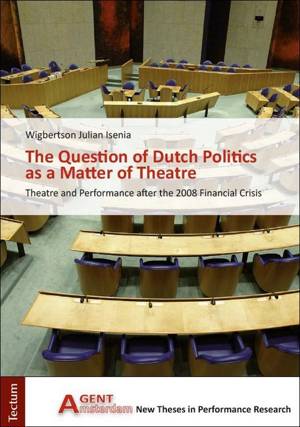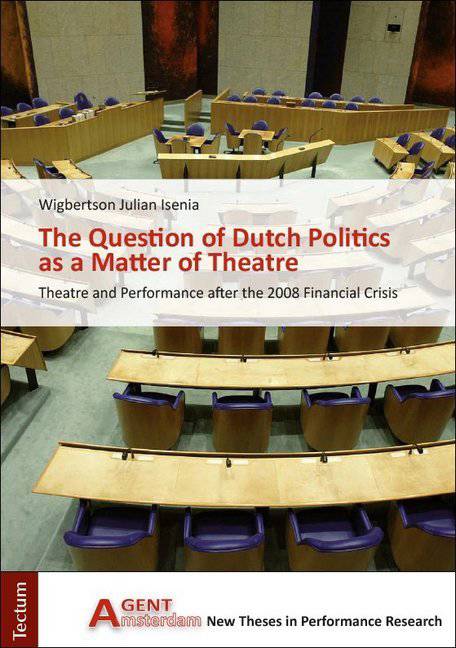
Je cadeautjes zeker op tijd in huis hebben voor de feestdagen? Kom langs in onze winkels en vind het perfecte geschenk!
- Afhalen na 1 uur in een winkel met voorraad
- Gratis thuislevering in België vanaf € 30
- Ruim aanbod met 7 miljoen producten
Je cadeautjes zeker op tijd in huis hebben voor de feestdagen? Kom langs in onze winkels en vind het perfecte geschenk!
- Afhalen na 1 uur in een winkel met voorraad
- Gratis thuislevering in België vanaf € 30
- Ruim aanbod met 7 miljoen producten
Zoeken
The Quesiton of Dutch Politics as a Matter of Theatre
Theatre and Performance after the 2008 Financial Crisis
Wigbertson Julian Isenia
€ 25,45
+ 50 punten
Omschrijving
Starting from the notion of 'post-democracy' elaborated by Colin Crouch, which indicates an increasing tendency towards the deterioration of democratic principles and the narrowing of the public sphere, this book explores how, in the Dutch context, this process is influenced by theatre and performance practice, art policy and governmental action. It points out that, within discourses of post-democracy, aspects of depoliticisation are commonly assessed through theatrical concepts such as spectacle, play, game and theatre. At the same time, this work argues by an analysis of three performances, 'Wijksafari Utrecht' by Adelheid Roosen, a political protest by Quinsy Gario, and 'Labyrinth' by the refugee group 'We are Here Cooperative', that there might be a role for theatre in this age of depoliticisation. It proposes to scrutinise, based on the writings of Samuel Weber, a paradox of theatre. Namely, while concepts of theatre are applied to convey disapproval of government and politics, theatre has a possible emancipatory character to dispute the given order.
Specificaties
Betrokkenen
- Auteur(s):
- Uitgeverij:
Inhoud
- Aantal bladzijden:
- 102
- Taal:
- Engels
- Reeks:
- Reeksnummer:
- nr. 8
Eigenschappen
- Productcode (EAN):
- 9783828840522
- Uitvoering:
- Paperback
- Afmetingen:
- 148 mm x 210 mm
- Gewicht:
- 167 g

Alleen bij Standaard Boekhandel
+ 50 punten op je klantenkaart van Standaard Boekhandel
Beoordelingen
We publiceren alleen reviews die voldoen aan de voorwaarden voor reviews. Bekijk onze voorwaarden voor reviews.









